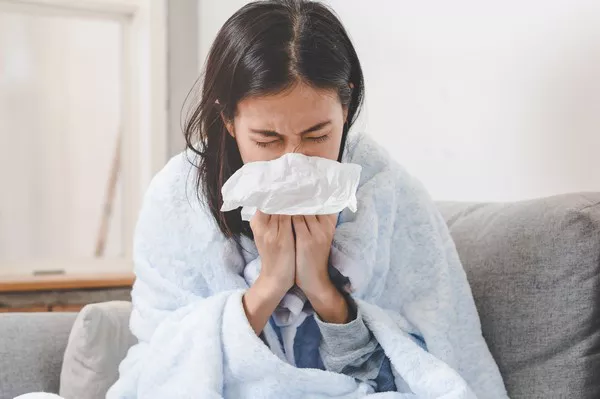Cold allergy, also known as cold urticaria or cold-induced urticaria, is a rare but discomforting condition where exposure to cold temperatures triggers allergic reactions. Symptoms can range from mild hives to severe anaphylactic shock. If you or someone you know experiences cold-induced allergic reactions, understanding the condition and the available treatment options is crucial for managing this unique allergy effectively. In this article, we will explore the treatment strategies for cold allergy and provide insights into preventive measures and lifestyle adjustments.
Understanding Cold Allergy
1. Cold Urticaria Mechanism
Cold allergy occurs when exposure to cold temperatures leads to the release of histamines and other chemicals in the body, resulting in allergic symptoms such as hives, itching, and swelling.
2. Symptoms
Common symptoms of cold allergy include hives (urticaria), redness and itching of the skin (pruritus), and in severe cases, difficulty breathing, and anaphylactic shock.
See Also: Cold Allergies: Causes, Symptoms & Management
6 Strategies for Managing Cold-Induced Allergic Reactions
1. Over-the-Counter Antihistamines
First-Line Treatment
For mild to moderate cold allergy symptoms, over-the-counter antihistamines like cetirizine (Zyrtec) or loratadine (Claritin) can help alleviate itching and hives. It’s essential to follow the recommended dosage instructions.
Non-Drowsy Options
Non-drowsy antihistamines are preferred for daytime use, as they do not typically cause drowsiness.
2. Prescription Medications
Stronger Antihistamines
In cases of more severe cold allergy, a healthcare provider may prescribe stronger antihistamines, such as fexofenadine (Allegra), or a combination of antihistamines and other medications to manage symptoms effectively.
Epinephrine Auto-Injector
Individuals with a history of anaphylactic reactions may be prescribed an epinephrine auto-injector (e.g., EpiPen) to be used in case of severe allergic responses.
3. Desensitization Therapy
Allergen Immunotherapy
Desensitization therapy, also known as allergen immunotherapy, involves exposing the patient to gradually increasing levels of cold stimuli under medical supervision. Over time, this can help reduce the severity of allergic reactions.
Consult an Allergist
Desensitization therapy should only be administered by a qualified allergist, as it carries some risks and requires careful monitoring.
4. Lifestyle Adjustments
Cold Avoidance
One of the most effective ways to manage cold allergy is to avoid exposure to cold temperatures. Dressing warmly, covering the skin, and using heated blankets or clothing can help prevent reactions.
Warm Water
When showering or bathing, use warm (not hot) water to avoid triggering allergic reactions. Quick, cold showers should be avoided.
Medication Management
If you have been prescribed antihistamines or other medications for cold allergy, it’s essential to take them as directed and have them readily available in case of exposure to cold.
5. Emergency Action Plan
Educate Others
If you or a family member has cold allergy, educate those around you about the condition and the importance of quick action in the event of a severe allergic reaction.
Identify Triggers
Identify and avoid specific cold triggers, such as cold foods or drinks, cold air, or contact with cold objects.
6. Consultation with an Allergist
Allergy Testing
Consulting with an allergist is crucial for proper diagnosis and management of cold allergy. Allergy testing can help identify specific triggers and guide treatment.
Individualized Treatment
An allergist can provide an individualized treatment plan tailored to your specific needs and the severity of your cold allergy.
Conclusion
In conclusion, while cold allergy can be challenging to manage, there are effective treatment strategies available to help individuals with this condition lead comfortable lives. From over-the-counter antihistamines to prescription medications and desensitization therapy, the approach to treating cold allergy can be tailored to each person’s needs. Lifestyle adjustments, such as avoiding cold triggers and having an emergency action plan, are also essential components of managing this condition. If you suspect you have cold allergy or have experienced symptoms, seeking consultation with an allergist is the first step towards a proper diagnosis and effective treatment. With the right approach and guidance from healthcare professionals, individuals with cold allergy can live confidently and comfortably, even in colder environments.


